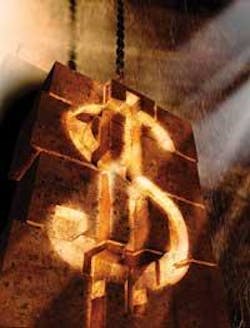You Can Fund A Pension After Retirement
by Jean Fallago, JD, LLM
Finally! You've worked hard, built a successful practice, and reached the goal you've worked a lifetime for — retirement. But rather than viewing this as the end of your financial planning road, it should be perceived as a new phase and a new opportunity to continue growing your pension.
As a senior dentist planning to retire, selling your practice is probably one of the first steps your take. Often in the course of the sale, you may be asked to remain on the payroll as a consultant to help in the transition. What many retiring doctors don't realize is that, as the seller, you may be able to use a consulting fee you receive to structure additional retirement benefits for yourself. Even though you're a retiree, you still have the opportunity to flow this fee into a pension plan.
Of course, you could simply take advantage of an IRA if you meet adjusted gross income limits. However, the goal should be to create a greater pension contribution than IRA limits for the year. If you operate a corporation and are selling all of its assets, you should consider keeping the corporation open post sale for the following reasons:
You will have the flexibility investing any consulting fees into the corporation. The corporation, in turn, can continue to pay benefits such as health insurance, long-term care insurance, etc., which are 100 percent deductible.
You may qualify to set up a defined benefit plan, which would permit a significant retirement contribution as well as reduce the taxes due on the consulting fee. The shorter the period between the date you begin contributing and your retirement age, the larger the contribution will be. Here's an example:
Let's assume that a $50,000-per-year consulting fee flows out to Dentist A's corporation over a 5-year period as part of the sale of the assets. Over the term of the pay out, approximately $250,000 would flow to Dentist A's corporation, which would in turn be taxable. Dentist A is age 60, and he sets up a defined benefit plan with a goal retirement age of 65. Based upon an actuarial calculation, here's what Dentist A's corporation can do:
On a $50,000 per year consulting fee:
o Pay $28,984 before taxes into a pension plan.
o Report the balance of $ 21,016 as W-2 wages. W-2 wages are further reduced by any deductible benefits the corporation elects to pay for the dentist. Therefore, FICA taxes are only paid on $21,016.
As the selling dentist, you've continued to add to your retirement assets and saved income taxes on $28,984.
Current Defined Benefit Plan contribution limits for 2004 are $165,00 annually. The opportunity for pension growth after retirement is obviously substantial.
A dentist who is a sole proprietor may likewise establish a defined benefit plan. However, a proprietorship does not benefit from reduced wages for FICA tax purposes. Accordingly, the economic results would differ from the example above.
It is essential to understand that once this type of pension plan is set up, it is a mandatory contribution and a permanent commitment.
Alternatives to defined benefit pension plans also exist that would permit continued pension contributions. A money purchase plan and a simple IRA are both good options. The amount of the consulting fee, in conjunction with your age, will dictate which option makes the most sense.
Pension plan creation costs range from $1000 to $5,000. There are annual administrative fees, which range from $950 to $1,200. Both are tax deductible.
As a legal advisor on estate planning, I encourage all my retiring dental clients to ask questions and check with advisors (accountants, attorneys, etc,). With sound advice from experts, you'll be able to carefully consider your options and make the most of your post-retirement income. After all, retirement isn't the end of the road, it's the beginning of a whole new adventure.

